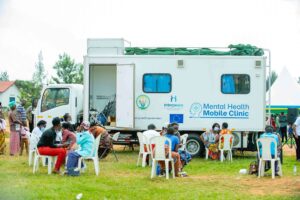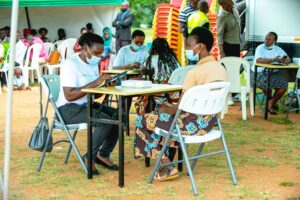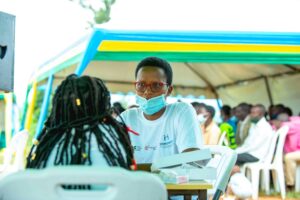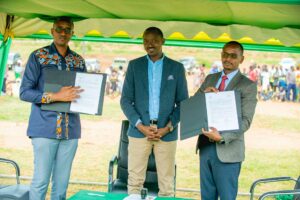Mobile mental health clinic: promoting mental health resilience and social cohesion in Rwanda
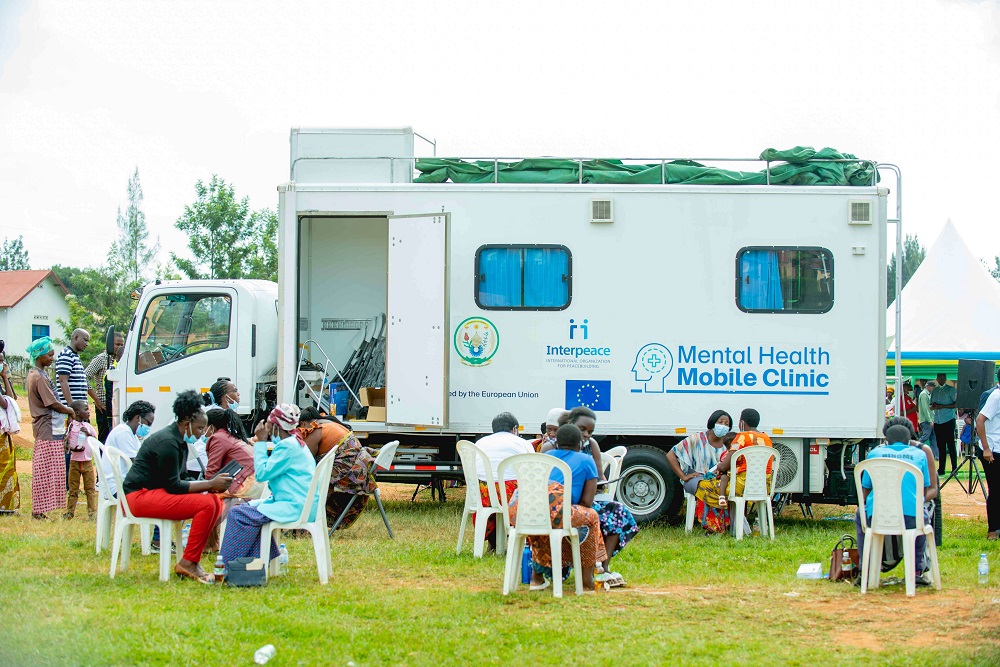
Justin Mambo (this is a pseudo), 46, is a retired military officer and a father of four. He resides in Bugesera District, in the Eastern Province of Rwanda. He recognises having mental health issues, including chronic headaches, anger issues and depression stemming from his military career.
“I sometimes wake up with too much anger and rage. In some cases, I emotionally and physically harm my family members unwillingly because of my mental health problems,” said Mambo, adding that he has difficulty in getting along with his neighbors due to his illness.
Mambo is one of many Rwandans who continue to face very high levels of trauma and other psycho-social problems. The recent Rwanda Mental Health Survey (RMHS) conducted in 2018 revealed that the prevalence of several mental disorders is higher than the global average and is particularly elevated among the survivors of the 1994 genocide against the Tutsi. Roughly 25% of Rwandan citizens struggle with posttraumatic stress disorder (PTSD), and one in six people suffer from depression.
On 18 May 2022, Interpeace and the Government of Rwanda launched a Mental Health Mobile Clinic to support national efforts to strengthen a decentralised mental health system.
A customized and well-equipped clinic was handed over to ADEPR -Nyamata District Hospital and will be used across the Bugesera district to conduct regular screenings of individuals or groups in communities, health centers or public places such as markets and do referrals of special cases to Bugesera Referral Hospital. It will also help mental health professionals provide home-based care to patients.
“We have been facing two serious challenges. Not only is Bugesera Hospital located far from our home, but we also lack financial means to take my sister to a psychologist. Now that we have a mental health mobile clinic in Bugesera, it has renewed my hope that she will receive adequate treatment, “said Jeanne Uwayezu(this is a pseudo), a resident of Bugesera District whose sister has been struggling with mental health problems.
The RMHS indicates that the level of awareness toward mental health services offered stands at 61.7%, versus a 5.3% utilisation rate. The clinic will also be used to carry out mental health awareness campaigns across Bugesera District.
The launch of the clinic is in line with Interpeace’s programme entitled: ‘’Reinforcing community capacity for social cohesion and reconciliation through Societal Trauma Healing’’ in Bugesera District. Funded by the European Union (EU), the programme offers a holistic approach to simultaneously address mental health issues while promoting social cohesion and fostering sustainable livelihoods in this district.
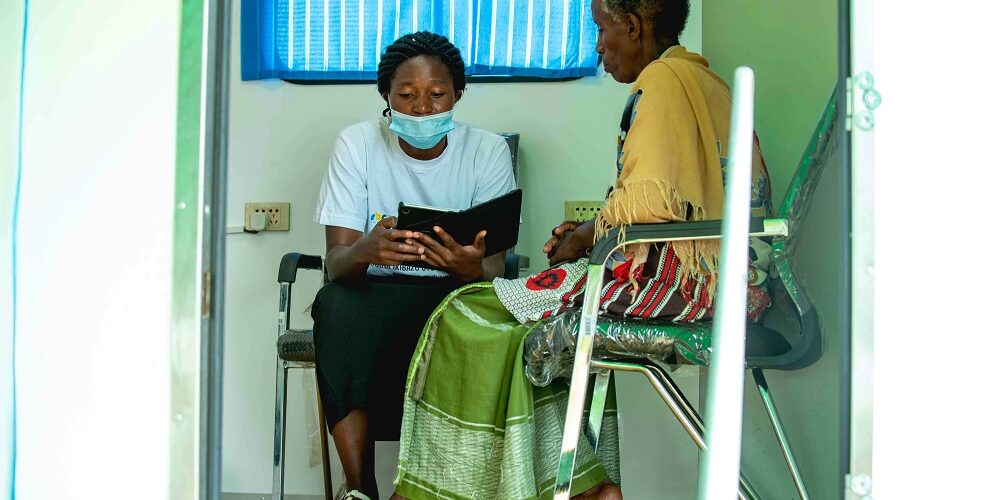
With the support from Swedish International Development Cooperation Agency (Sida), the programme has been expanded to five more districts in Rwanda, namely: Nyamagabe, Musanze, Nyabihu, Ngoma and Nyagatare. This clinic responds to the needs expressed by communities in Bugesera during the regular monitoring and evaluation process of the programme in the district.
“We have learned that mental health is an important aspect of social cohesion and reconciliation— trauma healing is an essential element in preparing communities to get together. We are happy that with this mobile clinic, it will be much easier for mental health professionals to reach the communities and do their work in a very professional manner,” said Ben Napnau, the Deputy Head of Mission of the European Union Delegation to Rwanda who added “This is one of our flagship projects that has proven to be highly relevant and effective. It is a model in a sense that we work with Interpeace, as an international organization but at the same time we build partnership with Rwandan organizations to be closer to communities. This is an essential element of a good cooperation.”
Dr Theodorus Hollander, Interpeace’s Senior Regional Representative for the East and Central Africa, highlighted the intrinsic link between peace and mental health. “Peace is not only about absence of violence, but peace is also about a sense of inner peace, it’s about mental resilience, it’s about the capacity of communities to interact with one other and the capacity to reconcile,” he said.
Hollander also appreciated how local authorities and the EU contributed to an initiative that strengthens long-term mental health resilience in the country.
The mental health mobile clinic is an innovative and unique solution that will support the implementation of the 2020-2024 National Mental Health Strategic Plan and contribute to the achievement of the National Strategy for Transformation (NST1) and Rwanda’s Development Vision 2050, which considers good health and well-being of the population as a national priority.
“After the 1994 Genocide against the Tutsi, we made one choice. The choice to live together as Rwandans and to reconcile. Interpeace’s trauma healing programme is helping us to strengthen that choice. We really appreciate this mobile clinic as it will help to strengthen mental health resilience as well as foster reconciliation process and socio-economic status of communities in Bugesera,” noted Commissioner General Emmanuel Gasana, the Governor of Eastern Province, and Guest of Honor at the launch of the mobile clinic.
The vehicle is equipped with a fixed workstation for at least one Doctor and one Nurse (seats and fixed tables), two fixed passenger seats, Wi-Fi internet connection, one foldable bed for use in emergencies (as an ambulance), two large waterproof tent extensions attached to the body of the vehicle, built-in silent generator for lighting and heating in case of power outage, solar panels for power backup in case it is operating in areas without access to power, as well as a built-in washroom.
Governor CG Gasana encouraged Bugesera District authorities, the management of ADEPR-Nyamata Hospital and the community members to ensure proper management and effective use of this mobile clinic.
